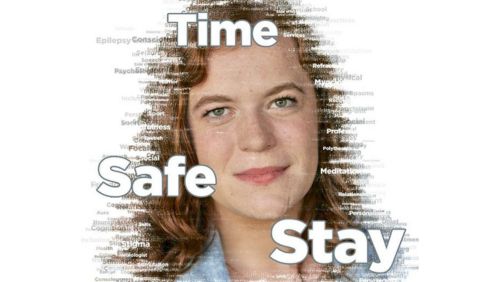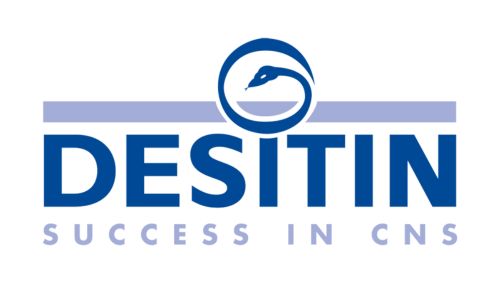
Of the millions of words written about epilepsy, did you know that there are just three that you need to remember when responding to a seizure?
Those words are TIME, SAFE, STAY and by landing on this page as part of our activities for #EpilepsyDay 2024, we'd like you to stay for a few moments and learn a bit more about these key words - the 45,000+ people living with epilepsy in Ireland would appreciate it!
So what do we mean by #TIMESAFESTAY?
TIME
The first thing you should do is TIME the seizure. This is because if a seizure goes over 5 minutes, an ambulance should be called.
SAFE
Keep the person SAFE during the seizure. If a person is having a convulsive seizure, cushion their head with something soft if possible and remove any harmful objects, e.g. furniture from their vicinity. NEVER put anything in a person's mouth or restrain them during a seizure. Be aware that there are also types of seizures where the person does not experience convulsions. Instead, they may “zone out” or stare blankly, become confused or agitated, display behaviours like chewing, smacking their lips, fiddling with their clothes, or wandering aimlessly. In this type of seizure, the person’s awareness of their surroundings is affected, and it is important to gently guide the person away from any danger. As with convulsive seizures, never restrict the person’s movements.
STAY
During the seizure and after it passes, STAY with the person. Often after a seizure, a person with epilepsy will be confused and in many cases, exhausted. Make sure to stay with them until recovery is complete, explain what has happened and gently reassure them. The person may have experienced an injury if they have fallen, and if this is the case, ensure normal first aid steps are taken.
So that is it! The three words from the millions of words written about epilepsy that you need to remember when responding to a seizure - TIME, SAFE, STAY!
We recognise that you might have some further questions - so we've outlined a few of these below!
Are there any other times when should I call an ambulance?
Good question and yes, there is. We've outlined these below:
- Call an ambulance if the seizure lasts for more than 5 minutes.
- Call an ambulance if a person having a seizure briefly comes out of it and goes into another one. This ties into point one. Both scenarios are potentially very dangerous for the person, so they need expert care.
- Call an ambulance if you know it’s a person’s first seizure or if you’re not sure whether the person has epilepsy or not (often a person with epilepsy will have a bracelet or card in their wallet/purse indicating they have epilepsy.)
- Call an ambulance if the person is physically injured e.g. if they have taken a heavy fall during their seizure.
- Call an ambulance if the person is pregnant as a precautionary measure in case any checks need to be carried out.
- Call an ambulance if you’re in any doubt – this is the most important point of all. No–one is going to be annoyed at you for calling an ambulance out of real concern; not the person who’s having the seizure and not the ambulance crew.
Do you have any materials that I can download and share with family, friends and colleagues?
Well, first and foremost, make sure you share our #EpilepsyDay campaign videos and images on your social media channels and please circulate the link to this page! But in response to your question, we do have detailed seizure first aid posters available. They can be downloaded below:
- Download Seizure first aid posters for convulsive seizures from our website
- Download our Seizure first aid posters for non-convulsive seizures from our website
Who are the people featured in your campaign images and videos?
All four people featured in our campaign are real people living with epilepsy in Ireland. You can read more about them and their stories of life with epilepsy at the links below.
- Read Cara's story by visiting the 'Life with Epilepsy' page on our website
- Read Paul's story by visiting the 'Life with Epilepsy' page on our website
- Read Lucy's story by visiting the 'Life with Epilepsy' page on our website
- Read Wayne's story by visiting the 'Life with Epilepsy' page on our website
We'd like to put on record our sincere thanks to Cara, Paul, Lucy and Wayne for taking part in this campaign and helping educate the Irish public about #TimeSafeStay!
We also shared more stories of the lived experience of epilepsy in the lead up to #EpilepsyDay 2024 - these stories are linked to below:
- Read Lia's story by visiting the 'Life with Epilepsy' page on our website
- Read Zanele's story by visiting the 'Life with Epilepsy' page on our website
- Read Linda's story by visiting the 'Life with Epilepsy' page on our website
- Read Lauren's story by visiting the 'Life with Epilepsy' page on our website
I know someone who needs support around their/their loved one's epilepsy - what services do you provide?
Epilepsy Ireland is here to support people with epilepsy and their family members on their respective journeys with the condition. We are a whole-life service due to the very nature of the condition. We have events for children with epilepsy, siblings of children with epilepsy, teens with epilepsy, young adults, parents, adults, teachers and we work with employers to provide information about the condition to help move us further towards our vision of a society where no person's life is limited by epilepsy. Our services are coordinated by our team of local Community Resource Officers. If you need information, support or advice around epilepsy - get in touch! You can find their details by visiting the 'Our Local Service' section of our website. You can also see our current events listing by visiting the 'Events' section of our website.
About International Epilepsy Day
International Epilepsy Day, a joint initiative created by the International Bureau for Epilepsy (IBE) and the International League Against Epilepsy (ILAE), is a global event celebrated annually on the 2nd Monday of February, to promote awareness on epilepsy right around the world. With IBE and ILAE representation in more than 140 countries, this is a powerful opportunity to highlight the problems faced by people with epilepsy, their families and carers, in every region of the world. As the national patient organisation representing people with epilepsy and their families in Ireland, Epilepsy Ireland lead the activities on the day here to educate the public on a condition that affects over 45,000 people in Ireland.
Epilepsy Ireland's activities for International Epilepsy Day 2024 has been proudly supported by Desitin Pharma.
